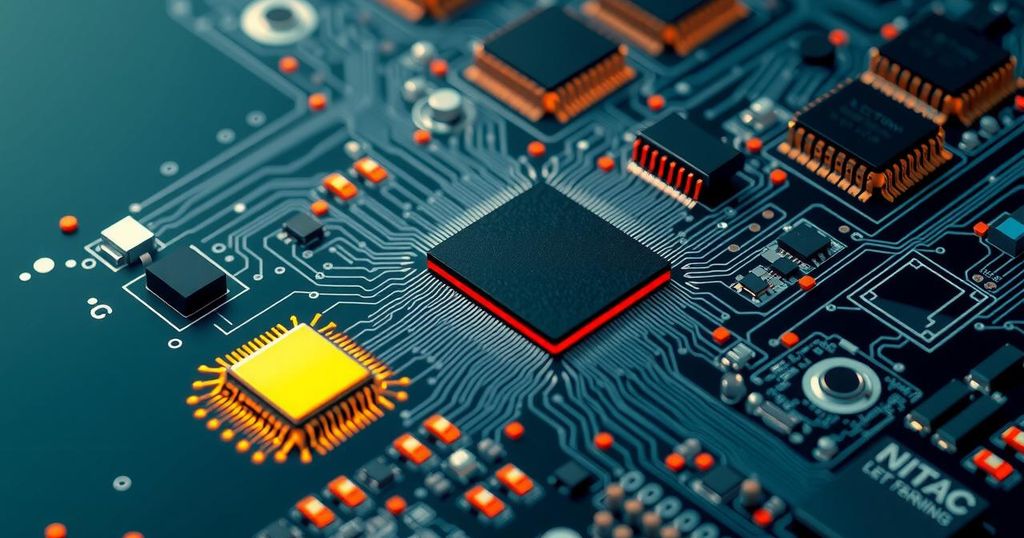The US is initiating a third round of export restrictions against China’s semiconductor industry, affecting 140 firms, including Naura Technology Group. The new restrictions aim to limit China’s ability to produce advanced memory chips and tools essential for semiconductor manufacturing. This move is seen as part of a broader strategy to protect national security by mitigating China’s advancements in AI and chip technology.
The United States is set to initiate its most recent series of export restrictions targeting China’s semiconductor industry. This action, which represents the third crackdown in three years, will impact 140 Chinese companies, including notable chip equipment manufacturer Naura Technology Group. The restrictions aim to limit China’s capacity to produce advanced memory chips and tools essential for semiconductor manufacturing. In addition to domestic companies, this initiative will also affect firms in allied countries such as Singapore and Malaysia by controlling their exports of chipmaking equipment to China.
This measure is part of the Biden Administration’s ongoing efforts to mitigate China’s advancements in chip technology, particularly pertaining to applications in artificial intelligence and national security. It arrives shortly before Donald Trump is sworn in again, who is anticipated to maintain many of the current restrictive policies against China. The new regulations not only impact a significant number of semiconductor companies but also expand controls related to high bandwidth memory (HBM) chips, which are crucial for high-end computing tasks, including AI training.
The package will introduce restrictions on 24 additional chipmaking tools and three software tools, further impacting major American companies such as Lam Research, KLA, and Applied Materials as well as foreign competitors like ASM International. It is emphasized that several of the affected companies maintain ties with Huawei Technologies, a leading telecommunications entity that has been significantly impeded by previous US sanctions.
As part of its ongoing strategy, the US government is poised to include Semiconductor Manufacturing International, China’s largest contract chip manufacturer, on the Entity List, limiting its ability to import vital technology. This will also be the first instance of private equity and tech firms being added to the Entity List, indicating a broader strategy to include financial entities contributing to chip-related developments.
Of note is how the new regulations will extend to allies of the US by instituting limitations on equipment made by Japanese and Dutch manufacturers, although those nations will be exempted under the new rules that affect foreign direct product sales. This is likely to complicate international supply chains in the semiconductor industry. Ultimately, these measures reflect a significant shift in US policy toward controlling technology transfer that could enhance China’s competitive stance in the global semiconductor landscape, particularly in advanced AI applications.
The article addresses the United States’ latest measures to restrict exports to China’s semiconductor sector, which has been an area of increasing concern for US national security. Over the past three years, the US government has aggressively pursued a strategy to limit China’s access to advanced chip technologies that are critical for military and artificial intelligence applications. This particular initiative represents a continuation of a series of policies designed to curtail China’s growing capabilities in semiconductor manufacturing, which could pose a threat to US hegemonic status in technology.
In conclusion, the US’s third initiative aimed at curbing China’s semiconductor industry underscores a strategic effort to restrict access to advanced technology, emphasizing concerns over national security and military applications. This initiative will significantly impact many companies within China’s semiconductor sphere, along with potential ramifications for foreign allies involved in chipmaking, thereby reinforcing the Biden Administration’s tough stance on China in the technology domain.
Original Source: www.business-standard.com






